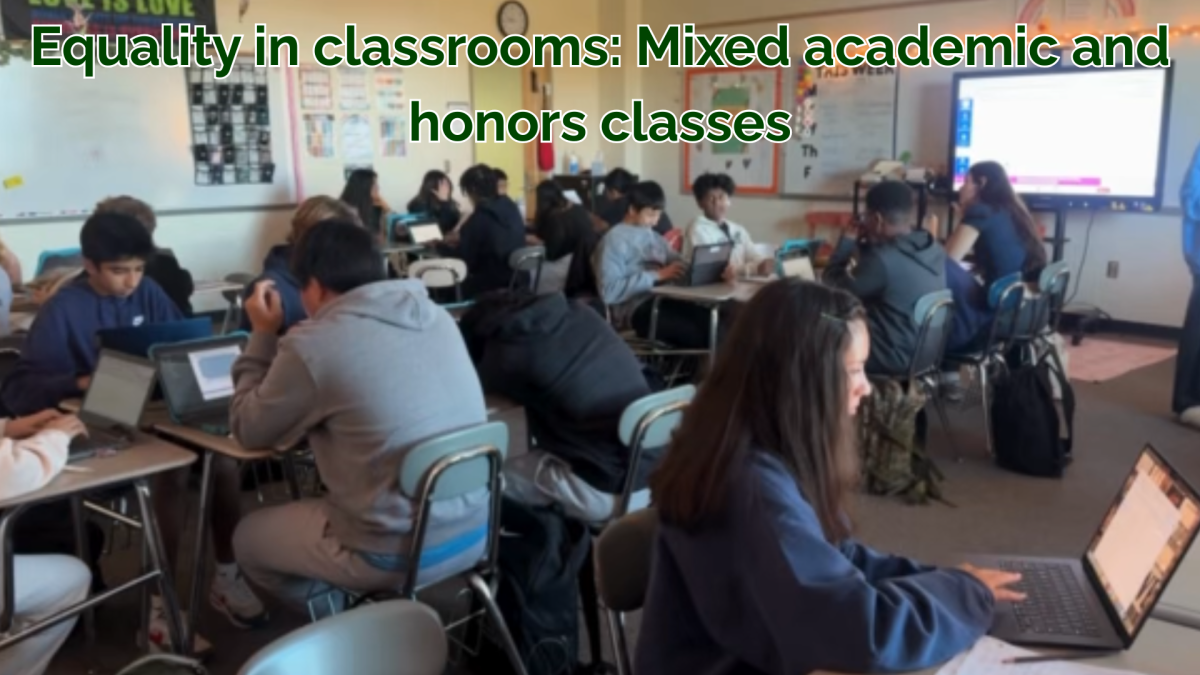Finals just got easier as Wake County launched a pilot program for a new exam exemption policy, giving every student a chance to skip teacher-made finals. The new policy states that if any student, no matter the grade level, has a projected grade of B or higher in a course, they can be exempt from the end-of-class exam as long as it’s not a state-mandated final. The student must also have ten or fewer absences and ten or fewer tardies to be eligible, serving as an attendance incentive. Previously, only seniors got the privilege of being exempt from exams, but now the only advantage they have is that they don’t need less than ten tardies to receive the exemption. Students at Green Hope and at other schools across the district have mixed feelings on this change.
Many seniors find this policy unfair. Jack Deeb (‘26) said,”When I was a freshman, sophomore and junior, we didn’t have this policy. I could have gotten a couple more As in classes if I were exempted from those exams.” On the other hand, Charis Choy (26’) was unhappy with these new policies because of their effectiveness for learning.”I don’t understand why they’re allowing people to be exempt from finals. Finals are definitely a good thing. It makes you really lock in. A lot of students are forced to try harder in class and to make sure they know their course curriculum in case it’s on the final exam.”
Although many upperclassmen are frustrated by the policy update, underclassmen have a more positive view of this change. Charlotte Koehn, (29’) said, “I think that if you’re already doing well in the class and you’ve shown that through your tests, there’s no reason for you to have to cram all over again.” The new policy can benefit students with an already high grade in a class as not having to take the exam will eliminate extra stress and the possibility of a students’ grades being brought down if they do not perform well on the final. With students whose grades border a lower grade, for example a grade of 91%, final exams can be extremely stressful as they have the power to change the letter grade a student receives. “I’m taking AP classes and the exams are already very stressful, so I don’t want to have to worry about a final exam,” explained Dyhana Sivarajan (’28).
Regardless of opinions on whether or not all grades should be able to be exempt from a final exam, students are critical of the criteria needed to get the exemption. The requirements of a projected grade of B or higher, less than ten absences and less than ten tardies have caused some concern among students. Deeb said,”I don’t feel like excused absences should count.” Similarly, Koehn said,”I think exemptions should be based on time and effort put into classes instead of some kind of lottery where you happen to be sick for ten days in the semester.” The “lottery” Koehn mentioned refers to how students must have 10 or less absences– excused or unexcused– in a class to be eligible for exemption. Them and many other students believe only unexcused absences should count towards the exemption, leaving factors such as unexpected illness or family deaths out of the equation. Them and many other students believe only unexcused absences should count towards the exemption, leaving factors such as unexpected illness or family deaths out of the equation.
Some were also critical of the protected grade of B or higher being the grade qualification. Choy said, “If it were a projected grade of A or higher, I would like it, but a B or higher is too easy.” Students like Choy worry that this new policy will encourage students to put less effort into the classes under the assumption they can be eligible for an exemption by just having a B and few attendance issues.
Conversely, Sivarajan viewed these attendance policies in a more positive light, saying that, “I think we can definitely expect a higher attendance and fewer tardies because people are more worried about what their final grade is going to look like than a couple more minutes of sleep.” She described how in previous years, there have been no major consequences to absences, making students more likely to miss a class. However, this year, students are more inclined to attend as many periods as they can to remain eligible for the exemption.
With these new policies in place , it begs the question of what the seniors’ new benefit will be. Choy explained how, “A lot of people in my class I know have worked really hard to get to this year and I think it would be really appreciated by our class if seniors did get some … privileges at least.” The freshman also agreed with this sentiment. Koehn added,” I think they should get more senior benefits other than just fun activities, especially to do all that college application stuff.” Applying to colleges and finishing up high school adds a lot of stress to seniors, leading many students to believe they need a larger reward for their accomplishments.
With students having mixed opinions on this new policy and the effects of it still unknown, only time will tell whether or not these exemptions will be a long-standing policy. For now, students should work towards limiting their tardies and absences to remain eligible for the exemption.












































































